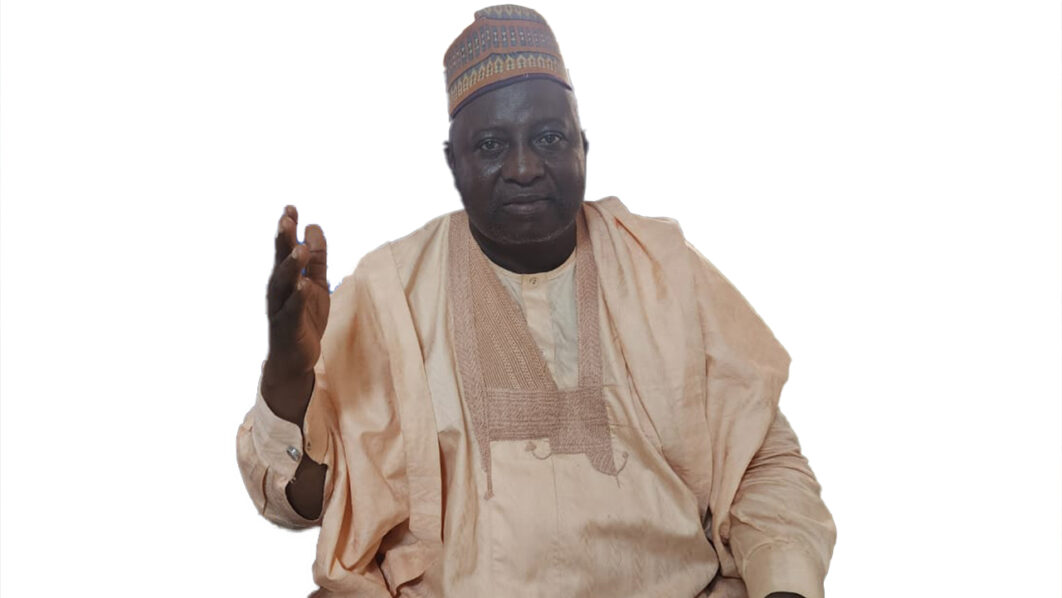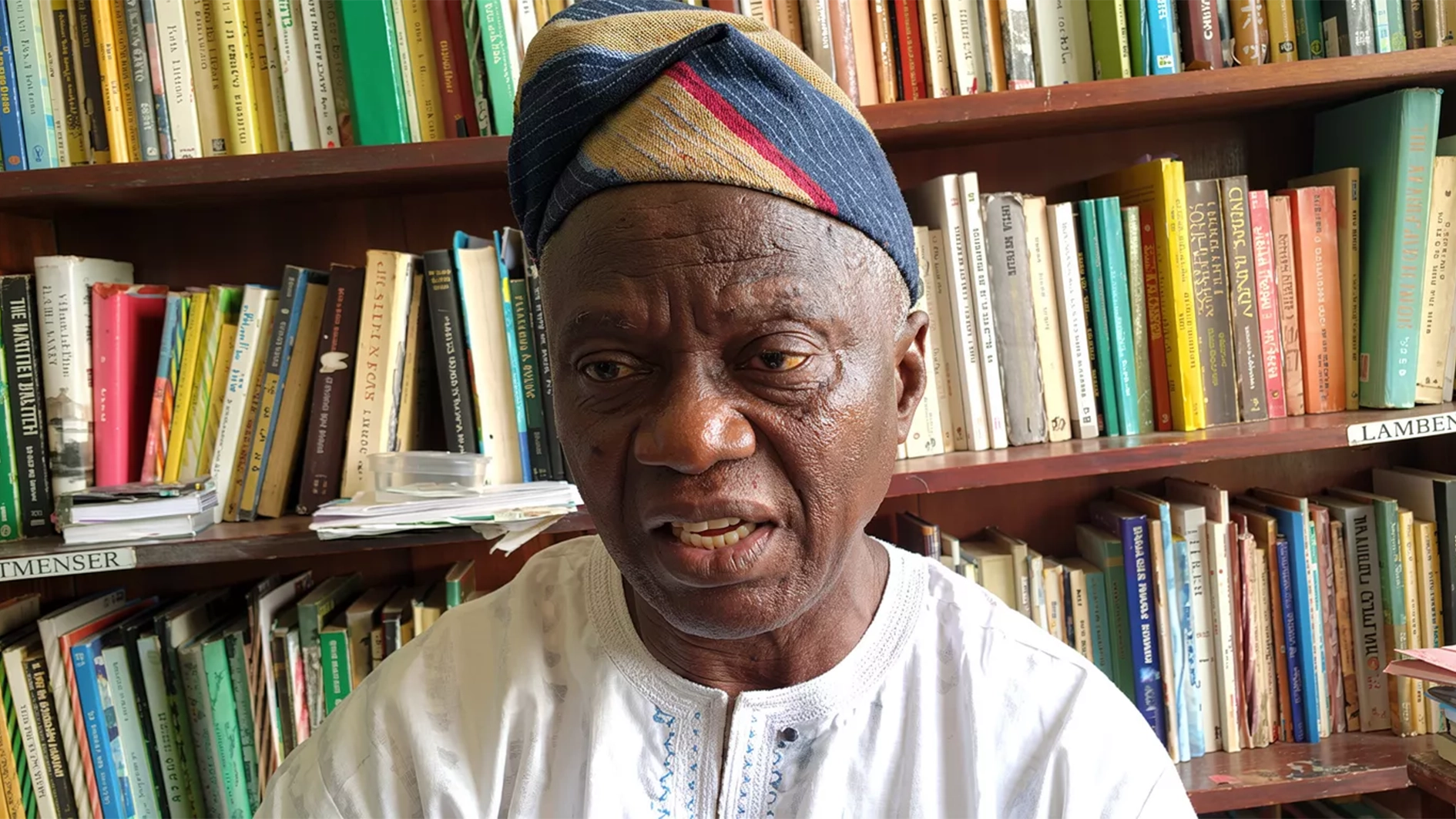
Alhaji Abubakar Zaki Tambuwal is the Executive Chairman of Sokoto State Internal Revenue Service. In this interview with MOYOSORE SALAMI, he spoke on the holistic strategies being adopted to ensure a drastic improvement of the state’s revenue, which are already yielding results.
One year after being appointed by Governor Ahmad Aliyu Sokoto, have you met the mandate given to you?
We were appointed in August 2023 and we are grateful to the governor for finding us worthy of delivering on the assignment. And I must acknowledge the governor’s solid support in the discharge of our assignment through the judicious use of the taxes in execution of his nine-point agenda and prompt funding of the Service, because without funding, there is no way we can work.
Revenue collection is expensive. The numerous projects the governor has embarked upon have helped the Service in the collection of taxes because the people are finally seeing the benefits of paying their taxes. Governor Ahmad Aliyu Sokoto is our Chief Tax Collector. We are not where we want to be, but we are most certainly going to get there as we intend to meet and surpass the target.
At the annual conference of the Chartered Institute of Taxation of Nigeria (CITN), the governor commended your efforts in raising the state revenue within one year. What is the game changer in terms of collection?
That’s a statement of fact and that’s an indication that the governor is happy with our efforts, but that’s also not to say we are going to rest on our oars. First, we have tried to understand our taxpayers and work in line with the law establishing the Service.
For instance, in calculating the Pay As You Earn (PAYE), we insist on the correct application of the table. Also, we have automated all our processes, blocked leakages and through enforcement and enlightenment improved compliance rate. Our target of N37 billion for 2024 is achievable. I am confident going by our performance in the first three quarters as of June 30.
Of note is that in 2022, the collection was a paltry N18 billion and this is understandable considering that it was an election year.Also, taxpayers and stakeholders engagement is a daily routine activity. We are always engaging with the public on our various social media platforms, the media and physically. From the update I got, tax collection improved by 10 per cent since the enforcement exercise by the Service commenced.
What has been your experience engaging the people in tax collection?
The truth is people don’t like paying taxes. And this is not peculiar to Sokoto State or Nigeria. I am sure you have read about footballers like Messi who ran into tax problems with the Spanish Government. The problems range from failure to file or filing false tax returns.
Recently, the son of the United States president pleaded guilty to misdemeanor charges for failing to pay his income tax. He would pay the backlog and might face prison terms. So, I can say that tax avoidance is a long tradition, which we will continue to face.
Our responsibility is to continue to work tirelessly to reduce it. It’s part of our challenges to be sincere to you, but as I said we will continue to address it day-in day-out through enlightenment programmes. And in our case, the governor is helping us with our collection. There is no doubt that people seeing the uses to which their money is being put has been helpful.
How has enhancing the ease of doing business and a favourable business environment helped your Service in tax collection?
The governor, being a financial expert, understood from day one that tax collection is dependent on making Sokoto State an investment hub and to achieve this he needed to provide the enabling environment for entrepreneurs to make money. We can’t make money if businesses don’t make money. So, all these policies and programmes are geared towards the development of the economy of the state.
For instance, if we need visitors to visit our state, the hotel owners will make money; so also would the tomato sellers, the poultry farmers etc. Another area the governor has helped us is the prompt payment of the salaries of workers. As you know, PAYE is very reliable because it’s deducted from the source.
Also, revenue collection is a law-based activity, which is why we can charge you to the tax tribunal for failure to pay as at when due. The law is standard; so taxpayers know what to pay, the tax exemption they are entitled to, and the penalties for not paying as at when due, and in providing us with truthful information for assessment purposes.
In Sokoto State, the Consolidation Law did not only harmonise but captured all sources of revenue in the state for both the formal and informal sectors. We are focused on all the sectors, but as you know we have no problem with public servants because their taxes are collected at source. So, our effort is presently focused on the informal sector where much needs to be done to bring in more people into the tax net.
Is presumptive tax on the table?
Yes, it’s on the table. Presumptive tax is under the informal sector which we are seriously paying attention to. For the benefit of all Nigerians and not just the people of Sokoto State, presumptive tax simply means that there is a legal presumption that the taxpayer’s income can be taxed but where for all practical purposes the income cannot be ascertained or because financial records are not kept to enable proper assessment. But you know, it’s a process, so we are engaging with all stakeholders and the unions to get their buy-in, which is critical and a massive enlightenment programme. Once we get it right it will increase our collection because presumptive tax reduces tax compliance costs.
What are your programmes to improve tax collection?
As I earlier said, we are always on social media and local media, and we have continued to organise physical sensitisation programmes to educate our potential taxpayers. We have also developed end-to-end system automation where all our operations have been simplified and can be accessed through self-service platforms.
Technology has shown that it is relevant to every revenue-collecting Service to identify the tax base, monitor compliance and make the overall taxpayer experience easier.
There is no profession, including football that is not making use of technology. So, we have leveraged on digital technologies to improve tax collection. The governor has invested heavily in the digitalisation of tax collection and I am certain he will continue to especially as we continue to improve collection. We must justify the investment in digital technologies. Being online means our taxpayers know we are open and reachable round the clock and throughout the globe. We are running an ICT-oriented revenue service. We have an Integrated Tax Administration System (ITAS) that is accessible via itas.irs.sk.gov.ng and like I said earlier all our operations have been automated; from taxpayer enumeration, unique taxpayer ID generation, bill and invoice generation, electronic payments with more than five payment channels, tax assessment, tax clearance certificate, e-receipting and many more.
How many people and businesses have you taken to the tax tribunal? A robust monitoring and evaluation system is critical in improving revenue generation. What has been your experience? What is your message to tax defaulters? The new management team of the Service continues to make it clear that payments must be made using an accurate tax table. This is what tax compliance is all about as applying the wrong tax table short-changed the government. We will also increase collaborations between all the services and the ministries, departments and agencies.
You will be surprised by the level of commitment of our taxpayers. And this is important in terms of tax compliance. We are extremely happy about their commitment because it is important to us and again the governor has been very helpful by delivering the dividends of democracy. Again it speaks well about the relationship between the taxpayers and the Sokoto State Internal Revenue Service. This relationship is critical.
The law requires that before we drag any tax defaulter to the tribunal, we must serve them notices – the first reminder, a second reminder, and then the final one. Thankfully, most of our taxpayers comply before it gets to that stage.
How do you collaborate with other relevant revenue agencies, and the chambers of commerce, industry associations, and professional bodies in achieving your mandate?
We value our stakeholders, and they have helped to achieve the success we have recorded. We have had a series of meetings with critical stakeholders regarding tax collection and bringing new taxpayers into the tax net. I must commend Governor Ahmad Aliyu Sokoto for the favourable business policies of his administration. The state government programmes would assist entrepreneurs and startups to access funds to start and develop their businesses.
We take post-mortem analysis seriously because it provides us with ways to assess our revenue collection processes, and performance tracking, identify bottlenecks, and implement corrective measures which are instrumental in ensuring efficiency and transparency. We are a public sector agency with the mindset of the private sector because it drives continuous improvement.
We have put them on notice that we are determined to collect every kobo due to the Sokoto State government. And from the recent enforcement activities carried out by the Service, they understand that they have no hiding place and that it’s in their interest to pay and as when due. We have embraced digital technology and that has been effective in driving collection.






